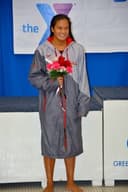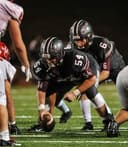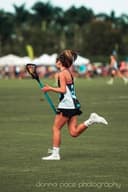Ryan Scott '19 Recruiting Profile

Video
 December 2018
December 2018Personal Statement
I was siting at my desk feeling nervous as Mr. Fagen walked up and down the rows handing back our first U.S. History II test of the year. He placed the paper on my desk face down, and for a minute I was afraid to turn it over. When I did, I saw a 70 written in the top right corner. I didn’t worry about it too much then. I was thinking I would do better on the next one. But on the next one, my grade was 72. I didn’t think the class was that hard, but for the first month and a half, I kept getting bad grades on tests. By now, I was upset by these grades; I wanted them to change, so I decided that I needed to change what I did to prepare for these tests. I needed to finish the course with a good grade.
I realized I would have to put a lot more work into the course to earn the grades I wanted. I thought about all the different things I could do that would help my grade improve. I considered staying after for extra help, but because Mr. Fagen was the lacrosse coach, he wasn’t around on most days. I started by taking notes on every single slide from the Power Point presentations he made in class, but that didn’t work. It was just way too much information. I would sit down to study, and I would just have pages and pages of notes. It was impossible to remember it all. Then I thought of summarizing everything I had learned in one class day, and writing that down. This method worked. In order to do that, I had to decide what was important and what wasn’t, and figure out cause and effect relationships, and how one fact related to another one. Once I did that, I was able to understand more of what I was learning.
Before each test, I would go on the Internet and watch videos about the topics we were learning in class. I was amazed at how much I found! I started to watch a National Geographic series about U.S. history. This helped the most because I was more focused when watching these episodes than I was during the Power Point slides loaded with facts. I learned some things that weren’t covered in class and everything seemed clearer than it was before. I had questions while I was watching, and sometimes I would look up names of people I didn’t know, so that I could learn more about them. It was kind of interesting.
Using all these new methods, I felt confident when I took the next test. A few days later, I got the test back with a 91 on it. I was pretty proud of myself. I realized that the summarizing and watching videos outside of class was making me more involved in what I was learning. It was a lot of work, but it was worth it. It became natural to me to summarize what we were learning every day. My grades kept improving and I was happy that my hard work was paying off. It was tough at first having to do everything but I got used to it. I ended up with a final average of 88, even after my bad start.
Doing this showed me what I was capable of doing, and how hard-working I was. I probably worked harder than any other kid in the class. I spent time outside of school learning things and understanding the topics more. Now I know that I can do very well if I work hard enough at something. I made regular time in my day to focus on something, and do my best, and it paid off. Now I know for the future that I can do well in anything I’m having trouble with if I put in the work.
Athletics
High School Information
- Years w/ Varsity
- 2 years
- Varsity Starter
- 2 years
- 2019 Varsity Team
- Starter- Jersey: #17
Team Awards
- Conference Champs, Sectional Champs
- 2018 Varsity Team
- Starter- Jersey: #17
Individual Awards
- 2nd Team All-Conference
Team Awards
- Conference Champs, Sectional Champs
Club Information
- Seasons of Club Experience
- 2 seasons
- 2018 Red Bank Generals (16U AA)
- 2018 Red Bank Generals (18U AA)
Coach References
- Travel / Club Coach
- Adrien Thomas
- High School Head Coach
- Adam Houli
Statistics
| Statistic | 2019 Varsity Team | 2018 Varsity Team | 2018 Red Bank Gener | 2018 Red Bank Gener |
|---|---|---|---|---|
| Assists | 16 | 16 | 24 | 13 |
| Goals | 12 | 14 | 16 | 11 |
| Points | 28 | 30 | 40 | 24 |
| Games Played | 20 | 19 | 42 | 16 |
| Record | 19 - 1 | 15-3-1 | 34-6-2 | 10 - 6 |
Academics
Grades
Test Scores
Academic Accomplishments
Are you in honor classes?
Yes.Are you in AP/IB classes?
NoTop NCSA Athletes at Manasquan High School




Top NCSA Athletes in Area




